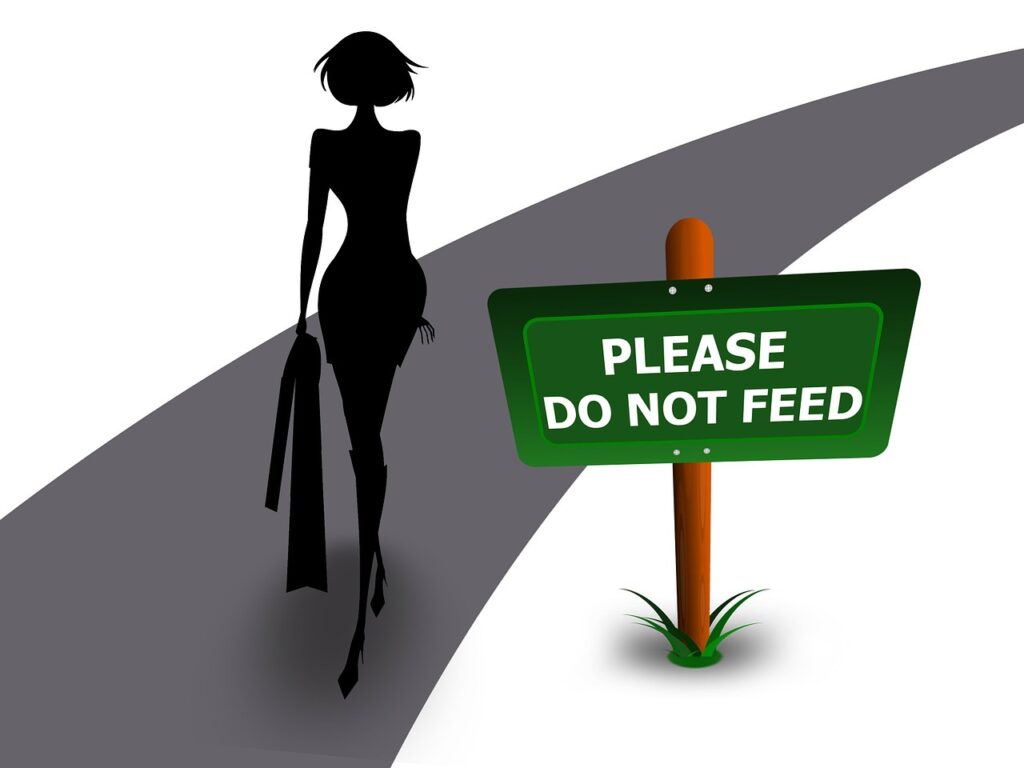Understanding Insecurities, Societal Pressure, and Mental Health Issues and tips to overcome them
Body image is an important aspect of our overall well-being. It is closely connected to our self-esteem, self-worth, and how we feel about ourselves. However, with the ever-increasing societal pressure to conform to certain body standards and the constant bombardment of unrealistic images on social media, it can be difficult to maintain a positive body image. In this blog post, we will explore the connection between body image, healthy eating, and mental health, and how to overcome the negative impact of societal pressure and social media on our body image.
Body Image and Insecurities
Body image is the way we perceive and think about our bodies. It is closely connected to our self-esteem and self-worth, and it can be influenced by a wide range of factors, such as societal pressure, media images, and personal experiences.
Societal pressure to conform to certain body standards can lead to feelings of insecurity and inadequacy. This pressure can come from many sources, such as family, friends, the media, and even strangers.
Body Image and Healthy Eating

Body image and healthy eating are closely connected. The pressure to conform to certain body standards can lead to disordered eating patterns and an unhealthy focus on food and weight. This can include things like restrictive dieting, binge eating, and even eating disorders.
Eating disorders, such as anorexia, bulimia, and binge eating disorder, are serious mental health conditions that are closely connected to body image issues. They can have a severe impact on both physical and mental health and can lead to serious health complications, including malnutrition, organ damage, and even death.
Body Image and Mental Health
Body image issues can have a negative impact on mental health, leading to conditions such as depression and anxiety. The constant pressure to conform to certain body standards can lead to feelings of inadequacy, low self-esteem, and even self-hatred.
The Impact of Social Media on Body Image
Social media can have a significant impact on body image. The constant bombardment of images of “perfect” bodies can lead to feelings of inadequacy and insecurity. Social media can also fuel disordered eating patterns, as people may compare their bodies to the bodies of others and feel pressure to conform to certain body standards. We have brilliant article on this topic. To read that, click Impact of Social Media on Women’s Mental Health
How to Overcome Body Image Issues
The good news is that there are many things that we can do to overcome body image issues and improve our overall well-being. Here are a few tips to help you improve your body image and mental health:
1. Limit your exposure to social media. Try to take a break from social media for a set period of time each day or week.
2. Surround yourself with positive influences. Try to surround yourself with people who support and accept you for who you are, rather than those who contribute to negative body image.
3. Learn to accept and love your body. Remember that everyone is different, and there is no such thing as a “perfect” body.
4. Practice self-care. Remember to take care of yourself, both physically and emotionally. This can include things like eating a healthy diet, getting enough sleep, and taking time for yourself each day.

5. Reframe your thoughts. Learn to challenge negative thoughts about your body and replace them with more positive thoughts.
6. Find a form of exercise you enjoy. Regular exercise can help improve your mood, boost self-esteem and increase self-confidence.
7. Seek professional help. If body image issues are impacting your daily life, it may be a good idea to seek professional help from a therapist or counselor.
8. Practice mindfulness. Mindfulness can help you focus on the present moment, rather than worrying about the past or future. It can help you develop a more positive attitude towards your body.

9. Learn to appreciate your body for what it can do, rather than how it looks. Instead of focusing on the physical appearance of your body, focus on its abilities and strengths.
10. Be kind to yourself. Remember to be kind and compassionate to yourself. Body image issues can make us hard on ourselves, but it’s important to remind yourself that it’s normal to feel this way and to give yourself credit for making progress.
11. Disconnect from the societal pressure. Society often tries to impose certain standards of beauty, especially on social media. But remember that beauty is personal and try to disconnect from those standards.
12. Practice self-compassion. Be kind and understanding towards yourself, rather than being critical and harsh. Remind yourself that everyone has insecurities and that it’s normal to have them.
13. Focus on health, not weight. Instead of focusing on losing weight or achieving a certain body shape, focus on eating a healthy diet and getting regular exercise. This can help you develop a more positive relationship with your body.
14. Challenge the unrealistic images. When you see unrealistic images on social media or in the media, remind yourself that they are often airbrushed, edited, and not a realistic representation of the person.
15. Embrace your uniqueness. Remember that everyone is unique and there is no one “perfect” body. Embrace your unique qualities and learn to love and appreciate your body.
16. Find a healthy role model. Look for role models who have a healthy relationship with their bodies and who promote self-love and body positivity.
17. Don’t compare yourself to others. It’s easy to compare yourself to others, especially on social media. But remember that everyone is different and it’s not healthy to compare yourself to others.
18. Get enough sleep. Sleep is essential for maintaining a healthy body image. It can help reduce stress, improve mood and boost self-esteem. To learn more, click Tips to Improve your Sleep
19. Be mindful of the language you use. Be mindful of the language you use when talking about your body. Avoid using negative terms and try to focus on the positive aspects of your body.
20. Learn to let go of perfectionism. Perfectionism can fuel body image issues and disordered eating patterns. Learn to let go of perfectionism and focus on progress and self-improvement.
21. Develop a positive self-talk. Develop a positive self-talk and focus on positive affirmations, be kind and compassionate towards yourself.
22. Seek support from loved ones. Surround yourself with supportive people who understand and accept you for who you are.
23. Practice body neutrality. Instead of focusing on loving or hating your body, try practicing body neutrality. This means accepting and acknowledging your body without any positive or negative emotions.
24. Challenge the societal beauty standards. Be aware of the societal beauty standards and challenge them by celebrating diversity and body positivity.
In conclusion, our body image is a delicate and complex aspect of our overall well-being. It’s a reflection of our self-esteem, self-worth and how we feel about ourselves. The societal pressure to conform to certain body standards, and the constant bombardment of unrealistic images on social media can make it hard to maintain a positive body image. But it’s important to remember that we all have different bodies and different abilities, and it’s not just the physical appearance that defines us. By following the tips and strategies outlined in this blog post, we can learn to overcome the negative impact of societal pressure and social media, and develop a more positive and healthy relationship with our bodies. It’s a journey of self-discovery, self-acceptance and self-compassion. So, let’s embrace our uniqueness, celebrate our diversity and love ourselves for who we are!
Reference
- Body Positive: Body Positive is a non-profit organization that promotes a positive body image and provides resources for individuals struggling with body image issues. Their website offers a variety of resources, including articles, videos, and support groups. https://www.bodypositive.com/


























Recent Comments